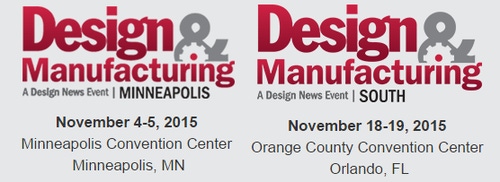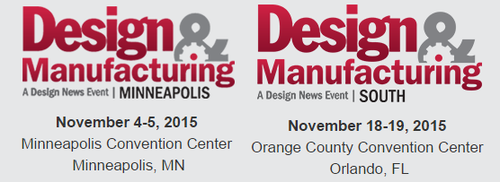Don't Overlook Compressed Air in Food and Packaging Automation Either
October 21, 2015

Last week, a major equipment supplier to machinery OEMs told us not to overlook the hydraulics in factory automation. This time, another supplier reminds us not to forget the compressed air -- notably in food-making and packaging machinery.
Keeping food on the tables of Earth's billions means preventing contamination of food processing systems via its many forms and vectors, and a recent presentation at the Pack Expo trade event in Las Vegas emphasized one contamination source in particular: compressed air.
Compressed air is often identified as the "fourth utility," alongside electricity, water, and gas, powering many kinds of industrial systems, including those for food production and packaging. At Pack Expo, Deepak Vetal, product marketing manager for oil-free compressors at Atlas Copco, discussed food safety, compressed air, and the value of the ISO 22000 standard for food safety management systems.
Vetal told Design News in an interview that Atlas Copco recently became the first maker of oil-free air compressors to receive ISO 22000 certification, which was issued by Lloyd's Register for the company's machine production facility in Antwerp, Belgium. Atlas Copco is a global manufacturer of industrial equipment, including many lines of air compressors.
In Las Vegas, Vetal emphasized to his Pack Expo audience that compressed air is used by 90% of food and beverage processing companies and is a safe and reliable power source for powering instruments, actuators, and conveyors; pressurizing; tank aeration; sorting; and other functions.
In oil compressors, the fluid is used for cooling, sealing, and lubrication of machine components. That oil can be introduced into the compressed air, and thus can potentially come in contact with food during production and processing. A compressor or any other piece of equipment could also carry physical hazards and contamination generated during its manufacture, thus conveying a threat into the food supply chain.
Compressed air might contact food directly, Vetal told the Pack Expo audience, or such contact could be more indirect, as when "compressed air is exhausted into the local atmosphere during food preparation, production, processing, packaging, or storage."
In his conversation with Design News, Vetal admitted that for an oil-free compressor "you're going to pay a premium up front," compared to an oil-lubricated model, "even two-and-a-half times as much in some cases." However, he added, "You need to look at the whole system and the life-cycle cost."
An oil-lubricated compressor will require a filtration system that has to be purchased and maintained at higher cost in the long run. An oil-free system "will pay back in about two years," he said. On top of that, with an oil-lubricated compressor, "you will still have about three parts per million" after filtration, whereas with oil-free technology "there is absolutely no oil at the compressor outlet."
READ MORE ARTICLES ON INDUSTRIAL AUTOMATION:
Vetal also acknowledged that even with oil-free technology, a company might need to filter compressed air for other contaminants such as dust or microorganisms, "depending on the quality-of-air requirement" at the individual food production site.
ISO 22000 is a wide-ranging standard and can affect parties across the food supply chain, including feed and primary producers, manufacturers of foods and ingredients, transport and storage operators, retail and food service operations, equipment producers, service providers, and producers of packaging materials, cleaning agents, and additives.
The standard specifies requirements for a food safety management system, a key component of which is the application of the Hazard Analysis and Critical Control Point (HACPP) system. An HACPP system assures that food safety hazards are controlled at key points in the process.

Al Bredenberg is a writer, analyst, consultant, and communicator. He writes about technology, design, innovation, management, and sustainable business, and specializes in investigating and explaining complex topics. He holds a master's degree in organization and management from Antioch University New England. He has served as an editor for print and online content and currently serves as senior analyst at the Institute for Innovation in Large Organizations.
[image via Atlas Copco]
About the Author(s)
You May Also Like


.jpg?width=300&auto=webp&quality=80&disable=upscale)


